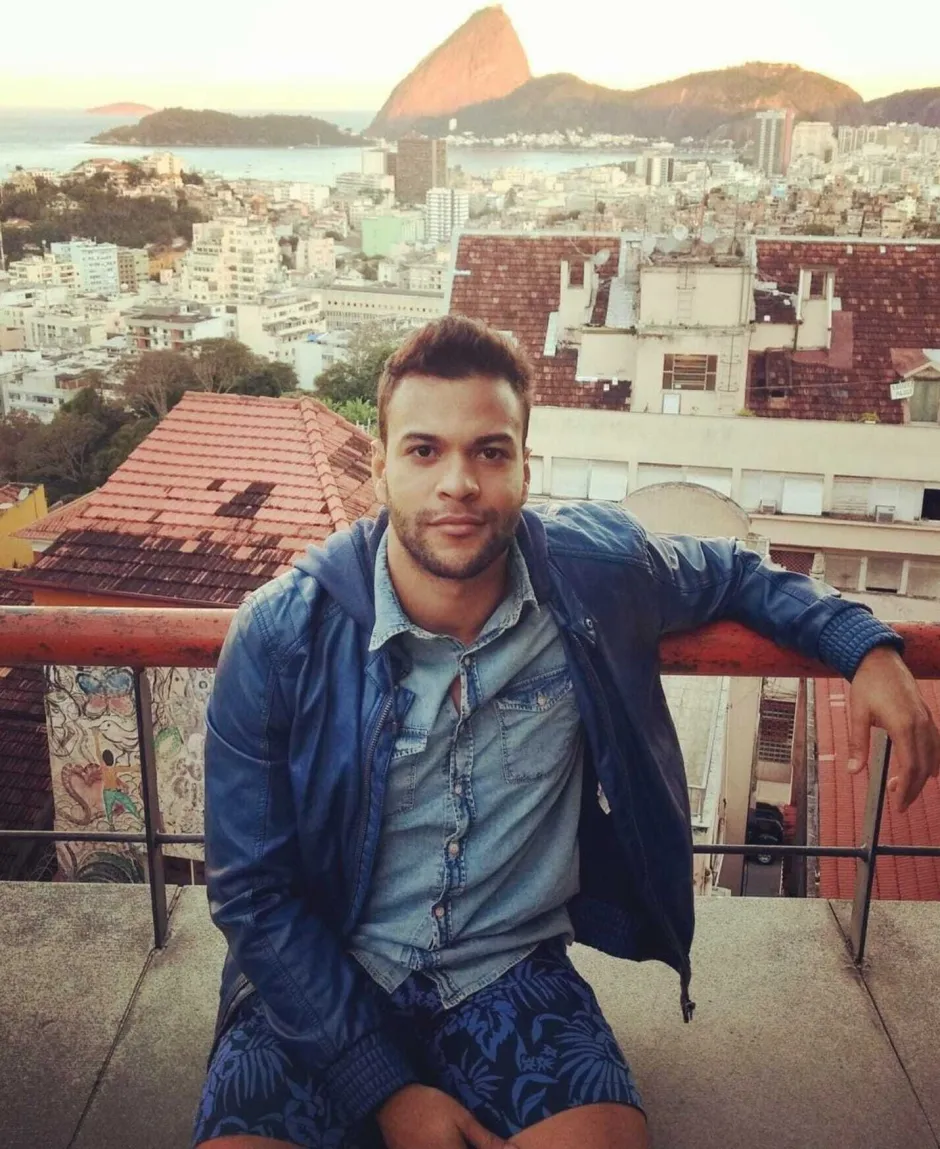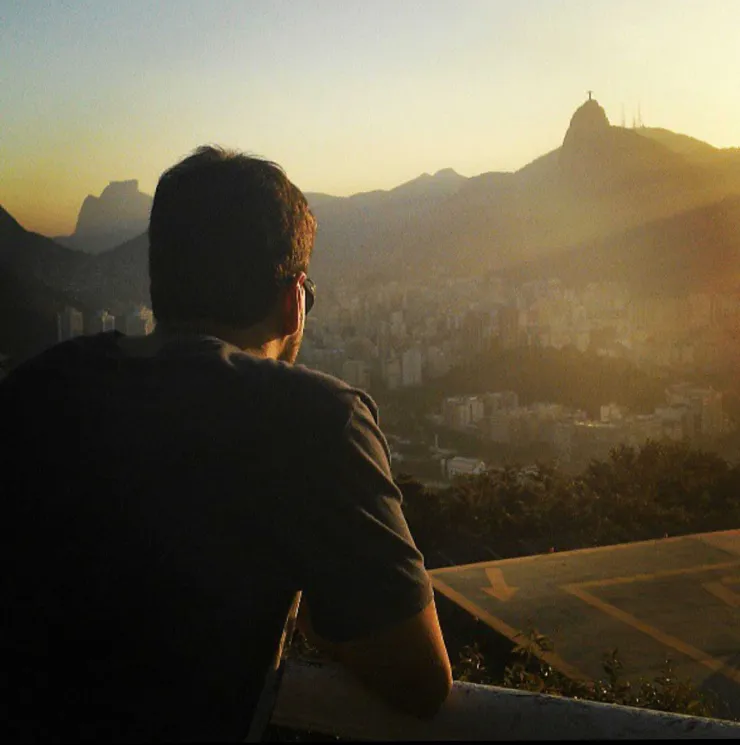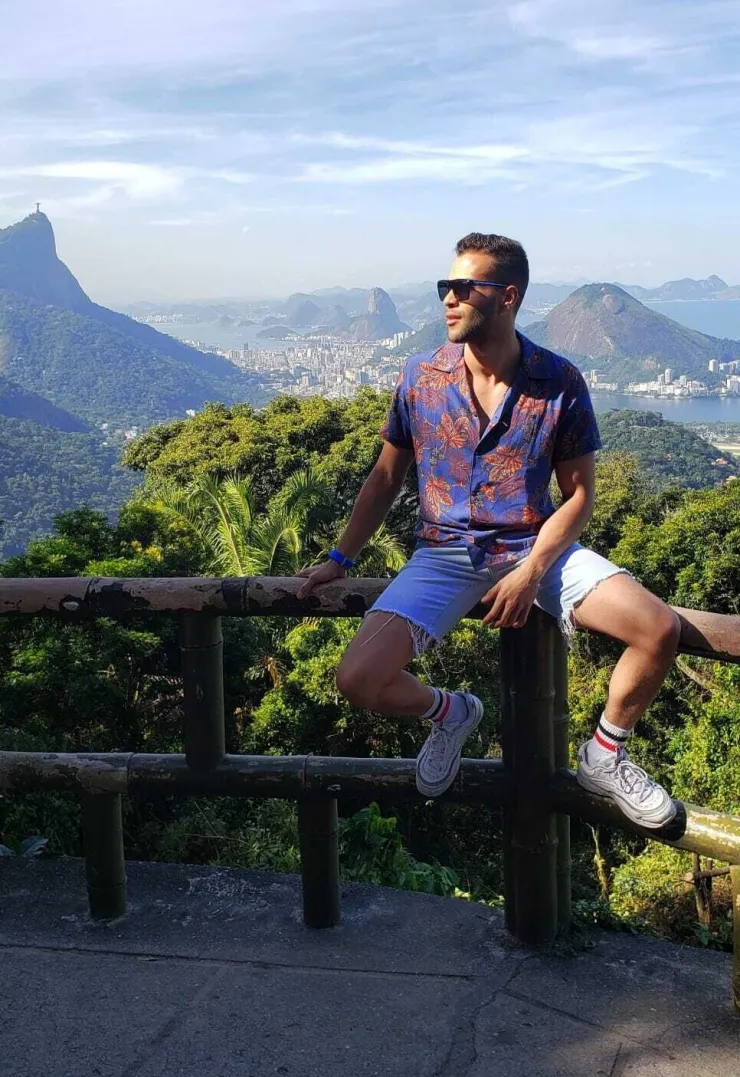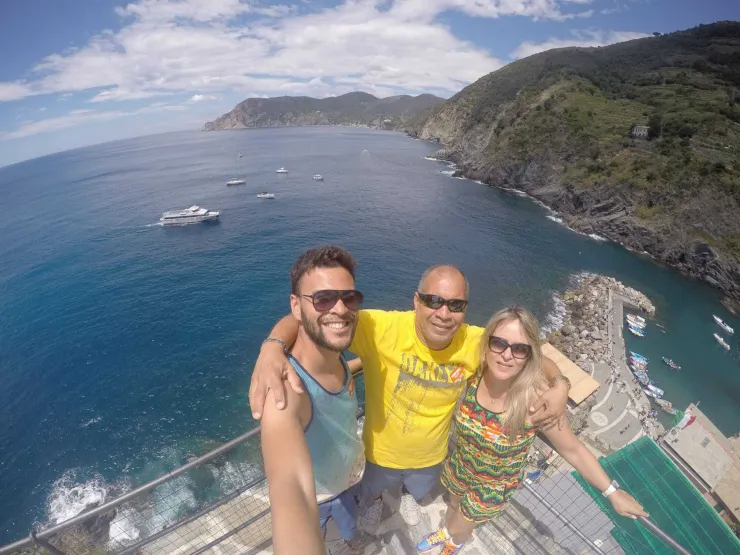
A quick online search and the words are easily found. Pride: a feeling of deep pleasure or satisfaction derived from one's own achievements, the achievements of those with whom one is closely associated, or from qualities or possessions that are widely admired. Though this definition is found in seconds, my personal journey to understanding Pride has taken a long time.
The year is 1992. The place is Rio, Brazil. I am a baby surrounded by samba, soccer and hot bodies at the beach. My father, a nearly-professional soccer player, has just replaced the ball and goal with a public job office. My mom, a nurse and physiotherapist, has worked more than half her life in a public hospital. Both are from lower-class families, both made it through all sorts of adversities. And there’s me: the nineties kid. The child who had more access to development and comfort because his parents fought hard among a society of inequality and injustice.
It is impossible to understand my path towards taking pride in who I am without beginning with my background. It is hard to comprehend who we are —or who we come to be — without acknowledging those who came before us and the society we live in. Taking pride in being who I am took me a long time because we were not taught from an early age to look at our qualities and perceived faults. We were not taught to face all the parts that make us, us. The opposite in fact, unless your identity chimed with the four pillars of privilege; straight, white, wealthy and male.
I was always between two worlds. I always felt like my life was being lived in a grey area: my mom is white, my father is much darker, the son of a Black woman and white man. I was not poor as my parent's generation, but I was not as rich as some of the people who would walk the same spaces that I would.
Geographically speaking, I had seen two sides of the same coin. I had been brought up in the suburbs, with people that would struggle to meet the month’s end. But on the other hand, I had been schooled amongst a very selective group of Rio’s emerging wealthy youngsters. My whole identity rested on a clash of two highly opposite worlds. And then added on top was my journey to accepting my sexuality.

Brazil is such a sexualized country. In Rio, we are always subject to nature's will: the heat, the beach, thunderbolts, and summer storms. The body is always in evidence, and little is used to cover it sometimes. Flip-flops on our feet, shorts, and no shirts for men who are comfortable with the look of their body — definitely not me growing up.
I was introduced to the world of bodies and sex anywhere I went. Yet, I could not understand my own identity, my own sexuality. Even though it seemed such an open space to explore how I would orient my sexuality, I always felt trapped. The power of the church in Brazil, especially the Catholic church and, more recently, the Protestant church, play such a pivotal role in the way our society works. The conventions of family. The restrictions from a hypocritical society where citizens who bark loud about how we should only keep traditional family models i.e made by a woman and a man, are also the same people who evade taxes and cheat on their spouses. As a kid, I would always see a heteronormative world that did not allow for other possibilities.

Even I could not define what my sexual orientation was growing up. This was not a surprise, and more nowadays I feel like we need to categorise ourselves so we may feel a little less lost. I liked boys, but I was also into girls at times. From day one, I felt like even the thought of self-proclaiming bissexual would be even worse than just saying the so feared word “gay”. It seemed to me that people perceived that as a lack of decision, in a way. I saw bisexual and gay people being buillied and mistreated all the time. Even my own father was one of the most homophobic guys I had known from an early age. When I come to think about it, it is amazing the transformation he has been through in the name of the love he feels for me.

It took me so long to understand that these were just social boxes. Now that I find myself sitting down writing this piece of such revealing and intimate reading, I still struggle to put into words what pride and diversity mean to me. But I can tell the tale of how I myself got into taking pride in the person I am today. And that is so important: by doing that, we can enlighten other people’s worlds not by defining concepts, but rather by deconstructing them.
For me Pride is less about establishing what can be, and more about opening up room for a wide variety of possibilities to love and to be. These possibilities are all valid because we are all valid. By scattering all the pieces we are made of and putting them together again we can build compassion for our own story. By doing so we allow for compassion and validation for other people’s stories and existences. This is when we can all take pride in who we are together.
Pride Month lifts and elevates LGBTQ+ voices, celebrates LGBTQ+ culture and shines a brighter spotlight on LGBTQ+ rights. For Flipdish, it is a time to examine our Diversity, Equity and Inclusion policies and to drive awareness, visibility and change through meaningful conversation and action.
This June, Flipdish is sharing internal updates on LGBTQ+ terminology and the importance of pronouns, hosting guest speaker Kellie Maloney who will speak about her experience of gender reassignment and elevating Flipdishers’ stories — special thanks to Lucas Freie and Rocio Aboy.
At Flipdish, we’re working together to build an inclusive environment where you can succeed while being yourself. See more at Flipdish.com/careers.


